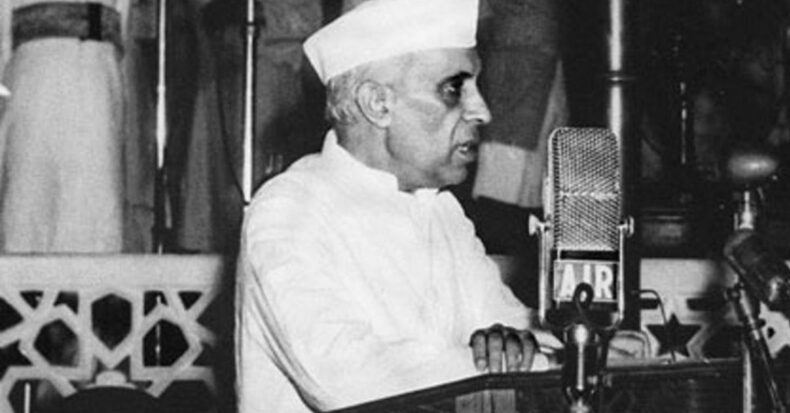The first elected Prime Minister of India was constituted on September 2, 1946, as authorized by the constitution of India, based on universal adult franchise, which allows every individual above the age of 18 the right to vote and show support towards their preferred government.
This freedom to vote provided India with a constituent to be a parliamentary democracy on January 26, 1950. The election commission of India was constituted to dedicate the electoral rolls of the Nation.
Hence couldn’t have formed a government without the presence of the electoral commission and the body. The first general elections commenced in October 1951 and continued till March 1952.
Why Nehru over Patel?
As history states, the majority of the Congress viewed Sardar Patel as the most meriting possibility to be India’s first Prime Minister, given his demonstrated history of being a capable director and a straightforward lawmaker. Thinking of that, one might argue that what went wrong?

By 1946, it had become peculiar that India’s autonomy was just a question of time now. The Second World War had concluded, and the British rulers had begun thinking about moving capacity to Indians.
It was proclaimed that an interim government was to be framed, which was to be headed by the Congress president as Congress had won the most significant number of seats in the 1946 races.
Out of nowhere, the post of Congress president turned out to be exceptionally essential as the individual upholding this position would be the Prime Minister of independent India.
During that time, Maulana Abul Kalam Azad was the leader of the Congress party, whom Nehru further replaced in the Meerut session.
By history, the president’s nominations were made by 15 state/regional Congress committees. Gandhi’s preferred choice was Nehru, but even though 12 out of 15 members elected Patel.
But still, Gandhi was adamant, and he persisted in Acharya J B kriplani to inaccurate some favours for Nehru Congress Working Committee (CWC).
Though Kripalani gathered some prospers, Gandhi estimated that he was initiating unfair foreplay, which resulted in Gandhi asking Patel to withdraw from the election, which he did eventually out of respect.
The reason’s behind Gandhi’s decision.
Gandhi accepted a well-instructed Nehru with present-day considerations over Patel, who was very conventional in his musings.
One of the other reasons was that Gandhi dreaded that Nehru would revolt on the off chance that he was denied PM’s post, which would give the British a pardon to defer move of force.
And he knew Sardar Patel’s steadfastness that he genuine loyalist and could never revolt against his country.

There is no denying that Gandhi had a ‘delicate corner’ for Nehru since the start, and he had favoured Nehru over Sardar Patel to some degree twice before 1946 for the post of Congress president.
It occurred in 1929, just as in 1937. Some investigators have likewise asserted that Nehru took steps to part the Congress off chance that he was not made Prime Minister.
As indicated by these examiners, Nehru forced Gandhi into supporting him by saying that on the off chance that he split the Congress, the whole freedom plan would turn as the British would get a pardon in postponing
freedom by bringing up the issue concerning who ought to be given over control of force, Congress with Nehru or Congress less Nehru.
Did this decision reflect poorly on our Nation?
Above all, Gandhi presented constrained choices by the supposed ‘central leaderships‘ that typically implies overruling state units.
Presently being followed across the political range, this training has discredited the fundamental idea of an internal party vote-based system.
Nehru’s imprudences on Kashmir and China demonstrated that Gandhi submitted an error in sponsorship Nehr by showing utter dismissal to overpowering help from most PCCs for Sardar Patel.
Indeed, even two known criticizers of Sardar Patel surrendered the direction that Gandhi’s choice toward picked Nehru over Patel was mistaken.
Hence, proving Gandhi’s overall decision to be unjust to the Nation reflects being unaccommodating for the future generation.
The US Is Increasing Its Dealings With Taiwan -angering China- (asianatimes.com)












